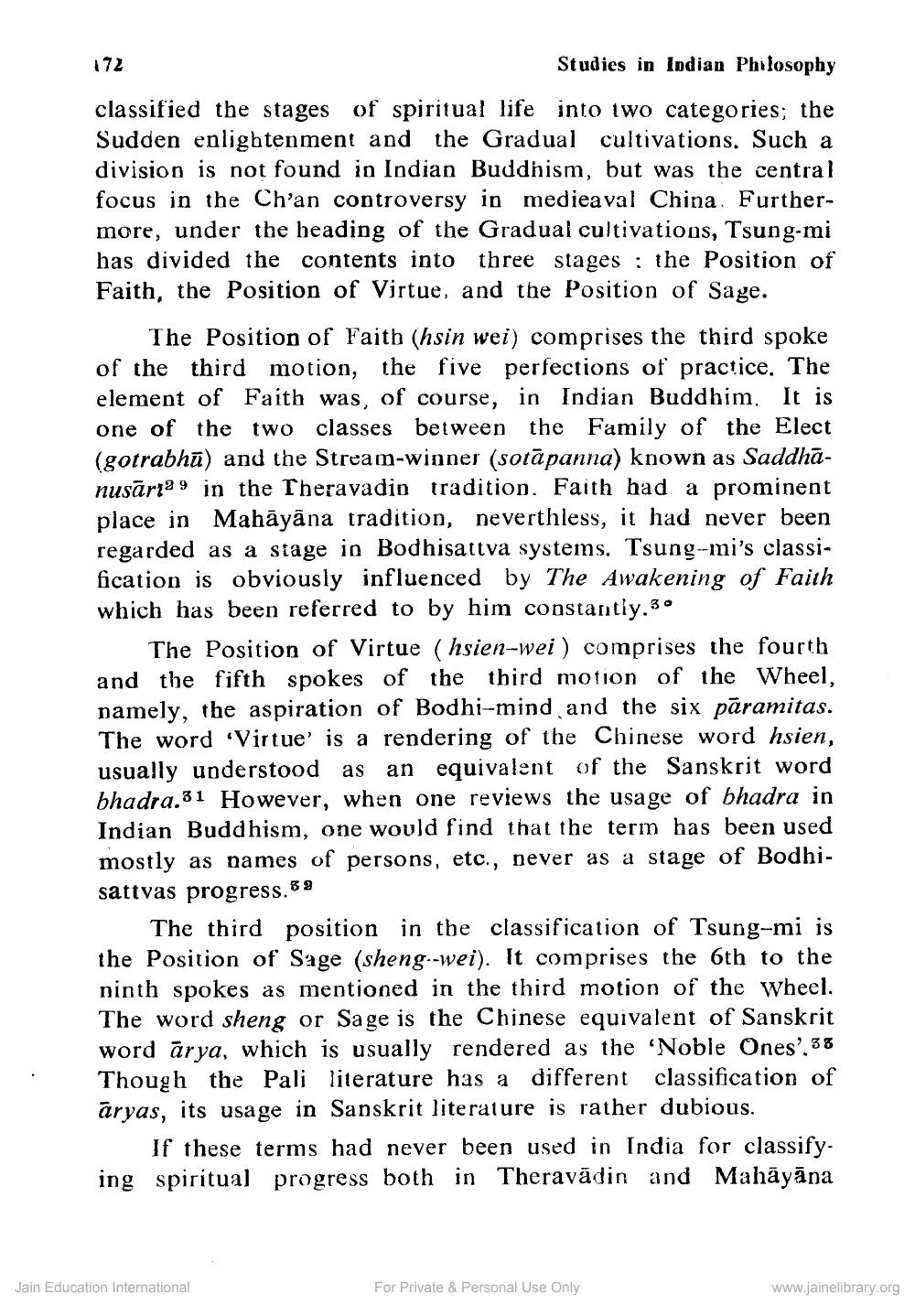________________
Studies in Indian Philosophy classified the stages of spiritual life into two categories; the Sudden enlightenment and the Gradual cultivations. Such a division is not found in Indian Buddhism, but was the central focus in the Ch'an controversy in medieaval China. Furthermore, under the heading of the Gradual cultivations, Tsung-mi has divided the contents into three stages the Position of Faith, the Position of Virtue, and the Position of Sage.
172
The Position of Faith (hsin wei) comprises the third spoke of the third motion, the five perfections of practice. The element of Faith was, of course, in Indian Buddhim. It is one of the two classes between the Family of the Elect (gotrabhu) and the Stream-winner (sotapanna) known as Saddhanusar129 in the Theravadin tradition. Faith had a prominent place in Mahāyāna tradition, neverthless, it had never been regarded as a stage in Bodhisattva systems. Tsung-mi's classification is obviously influenced by The Awakening of Faith which has been referred to by him constantly.3°
The Position of Virtue (hsien-wei) comprises the fourth and the fifth spokes of the third motion of the Wheel, namely, the aspiration of Bodhi-mind and the six pāramitas. The word 'Virtue' is a rendering of the Chinese word hsien, usually understood as an equivalent of the Sanskrit word bhadra.31 However, when one reviews the usage of bhadra in Indian Buddhism, one would find that the term has been used mostly as names of persons, etc., never as a stage of Bodhisattvas progress.59
The third position in the classification of Tsung-mi is the Position of Sage (sheng--wei). It comprises the 6th to the ninth spokes as mentioned in the third motion of the Wheel. The word sheng or Sage is the Chinese equivalent of Sanskrit word arya, which is usually rendered as the 'Noble Ones', 38 Though the Pali literature has a different classification of aryas, its usage in Sanskrit literature is rather dubious.
If these terms had never been used in India for classifying spiritual progress both in Theravadin and Mahāyāna
Jain Education International
For Private & Personal Use Only
www.jainelibrary.org




